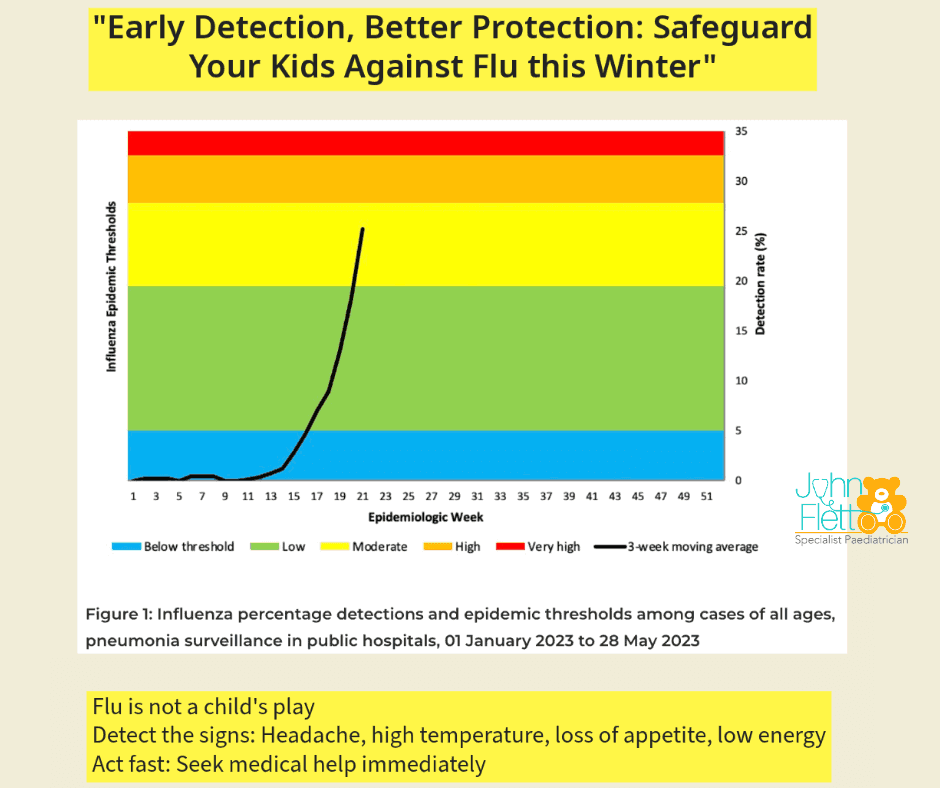The Importance and Need for Vigilance: Spotting Influenza Symptoms in Children Early – Winter 2023

Understanding Influenza
– Influenza, also known as the flu, is an acute respiratory infection instigated by various types of flu viruses.
– Different types of seasonal flu viruses, including A(H1N1), A(H3N2), and B viruses, circulate throughout the year.
Influenza and COVID-19: The Twin Challenges of 2023
– This year, the flu season might coincide with a surge in the transmission of the COVID-19 virus. This overlap makes the diagnosis and management of both illnesses more complex due to shared symptoms.
– Despite the similarities, it’s important to note that COVID-19 carries a higher risk of mortality.
Risk Groups: Who’s More Susceptible?
– Certain groups are more likely to be hospitalised due to the flu. This includes those over 65 years, HIV-positive individuals, and children under five years, particularly infants.
– Pregnant women also constitute a high-risk group.
How Does Influenza Spread and What Are Its Symptoms?
– The flu mainly spreads through infectious droplets released during coughs or sneezes.
– Typical symptoms of the flu include sudden fever, cough, sore throat, muscle aches, and headaches.
Treatment Options
– Oseltamivir (Tamiflu®) is the recommended antiviral medication during the flu season.
– Keep in mind: even if you’ve received the flu vaccine, you’re not entirely immune to the infection.
The Current Scenario (June 2023)
– In the ongoing flu season, be especially vigilant about symptoms like high temperatures and headaches in children, as these are not common complaints among them and could indicate the onset of the flu.
– Symptoms like lethargy, flu-like signs, and difficulty breathing should not be ignored.
– Over the past two months in my practice, I, Dr. John Flett, have noted a surge in children presenting severe illness, often requiring hospitalization.
Your Role in Combating Influenza: Vaccination and Surveillance
– Vaccination is a crucial preventative measure against the flu. Ensure all family members, especially children, get their annual flu shots.
– Being vigilant in monitoring and responding promptly to flu symptoms is key to effective treatment and recovery.
– Never hesitate to seek professional medical help when in doubt. It’s always better to err on the side of caution. Let’s ensure the safety and well-being of our children this flu season!


